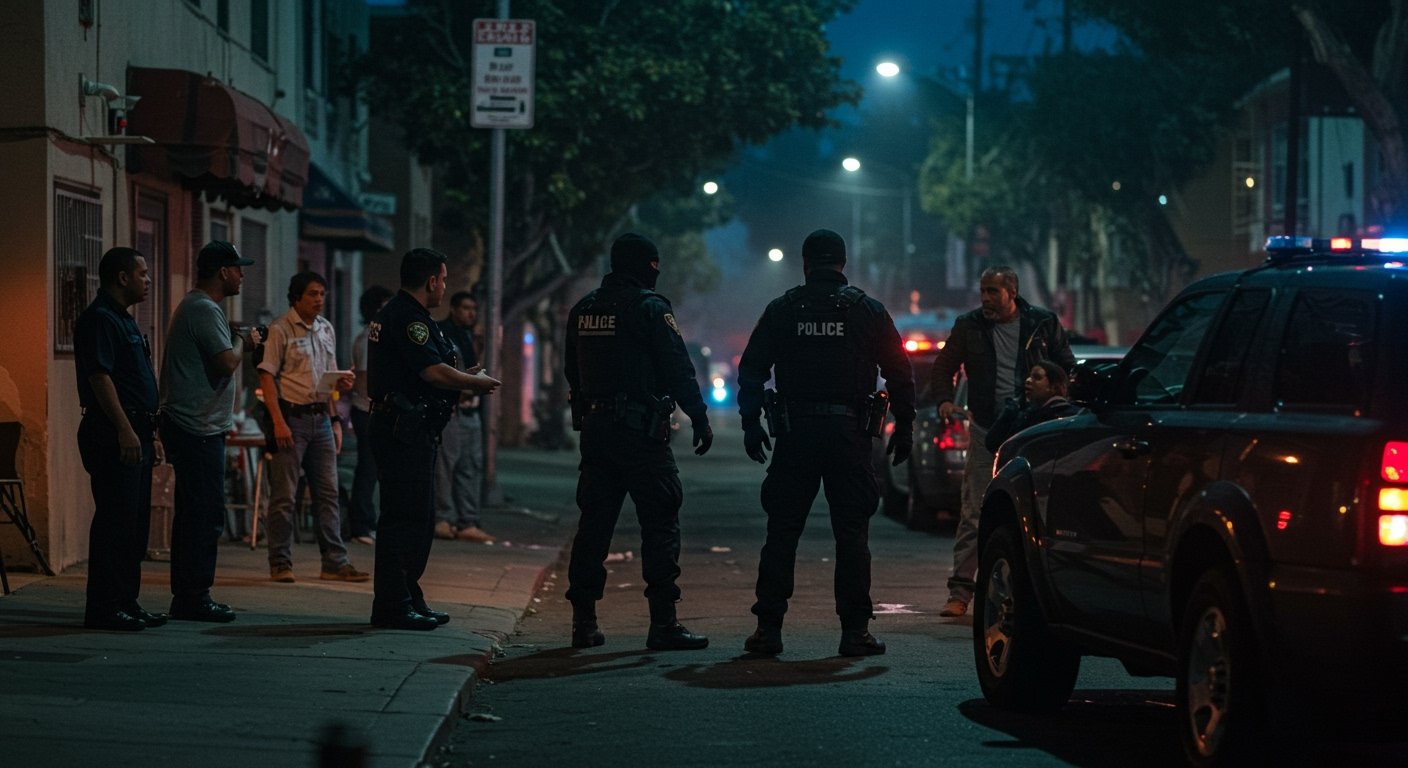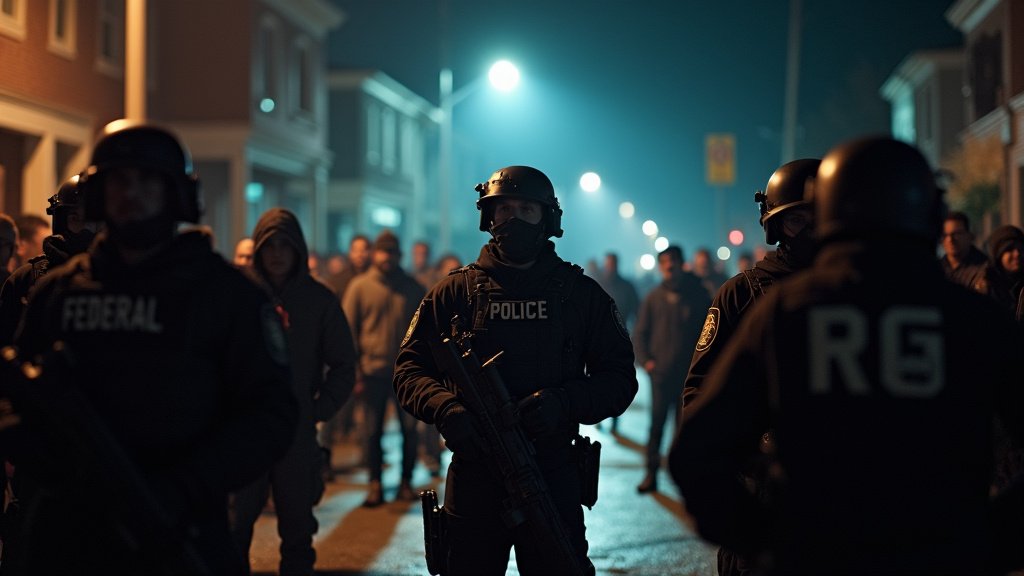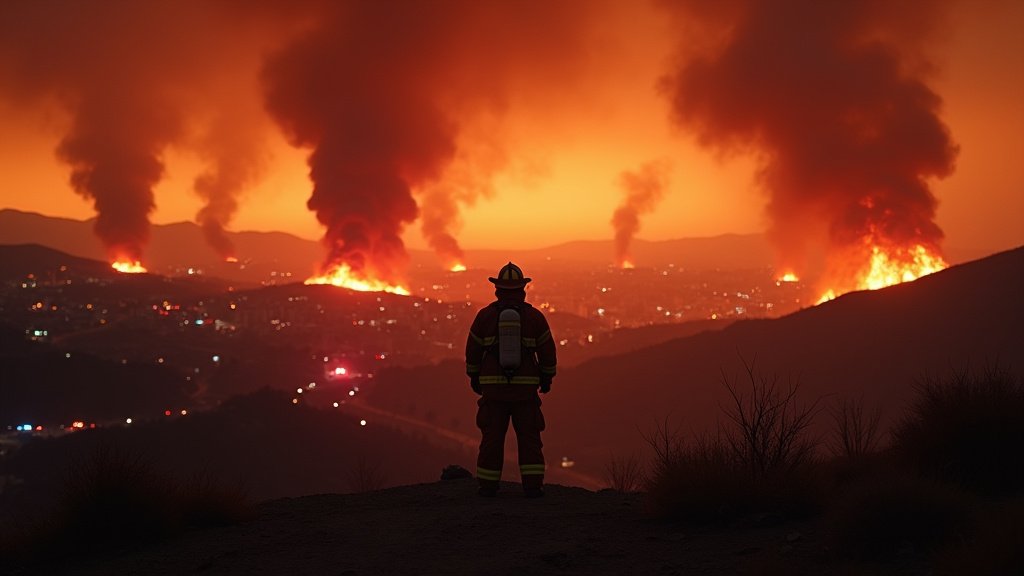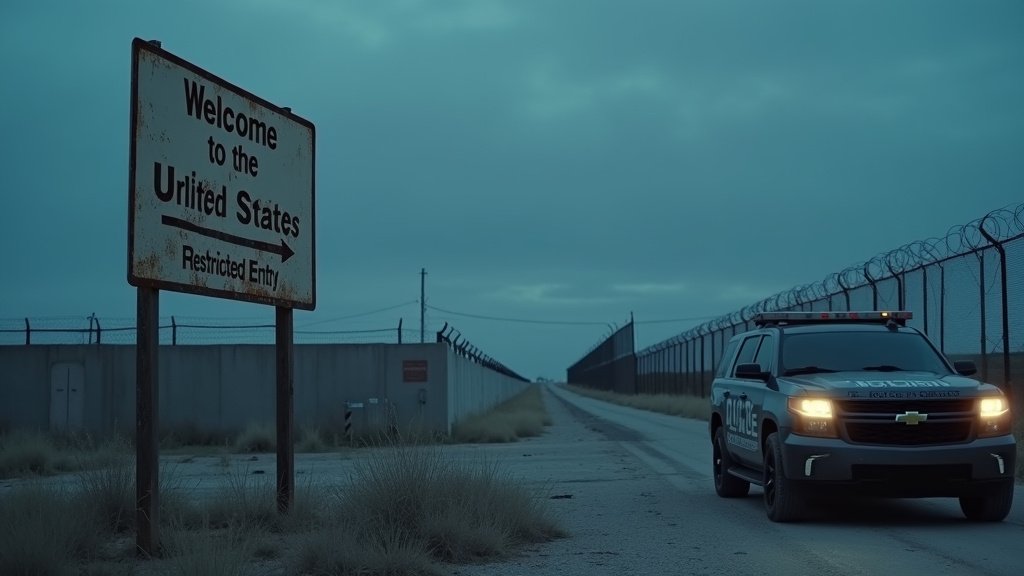LOS ANGELES – Aggressive immigration enforcement actions by masked federal agents operating in unmarked vehicles across the Greater Los Angeles region are generating significant challenges for local law enforcement agencies and sowing widespread fear among residents. These operations, often conducted with minimal or no prior communication with local authorities, leave municipal police departments to navigate the aftermath, including public protests and urgent inquiries from concerned citizens.
Adding to the complexity, local officers have reported being mistaken for federal agents, an issue that is actively eroding years of dedicated effort to build trust within immigrant communities throughout the vast Los Angeles area. The increasingly visible and often opaque nature of these federal activities contrasts sharply with community-policing initiatives championed by local departments.
Unannounced Operations Strain Local Resources
Local police officials have expressed frustration over their lack of insight into the locations and timing of these federal enforcement actions. This disconnect means local agencies are frequently blindsided, left to manage public reactions and logistical issues without adequate preparation or understanding of the federal objectives. The sudden appearance of masked individuals detaining people without clear signs of federal affiliation, identification, or presented warrants has heightened community anxiety.
These concerns have manifested following a wave of immigration sweeps conducted by masked agents over the two weeks prior to recent incidents. These earlier sweeps reportedly targeted predominately Latino communities, further intensifying apprehension among residents in these areas.
Incidents Spark Alarm Across the Region
Specific incidents contributing to these concerns have unfolded at prominent and disparate locations, including Dodger Stadium, in the city of Bell, and in the city of Pasadena.
Los Angeles Mayor Karen Bass publicly addressed concerns surrounding the agents observed at Dodger Stadium. Commenting on their methods, Mayor Bass stated that the individuals “show up without uniforms, masked, and refuse to give ID.” She questioned their identity, asking if they were “federal officials, bounty hunters, or vigilantes,” highlighting the ambiguity and lack of transparency surrounding their presence and actions.
An incident in Pasadena drew particular attention after a video went viral online. The footage reportedly showed a man in an unmarked vehicle who allegedly aimed a pistol at pedestrians before activating emergency lights and speeding off. The incident underscored the challenges faced by local officials in identifying and responding effectively to such events, especially when involving individuals whose affiliation is unclear.
Pasadena Police Chief Gene Harris later estimated, following a review of the available footage and credentials, that the individual involved in the Pasadena incident was likely an ICE agent. This assessment, while providing some clarity on that specific event, did not alleviate broader concerns about the methods and lack of coordination characterizing these federal operations across the region.
Erosion of Trust and Community Impact
The confusion surrounding the identity of agents – particularly the instances where local officers are mistaken for federal immigration enforcement – poses a significant threat to the community relationships local police have worked diligently to cultivate. Trust, built over time through community engagement programs and efforts to encourage cooperation with law enforcement on local crime matters, can be quickly undermined by the perception that local police are involved in or aware of aggressive, unannounced immigration raids.
Beyond direct encounters, the ongoing situation has been linked to broader community impacts. There has been a reported plummet in L.A. bus ridership, attributed directly to fears among residents of being apprehended in immigration arrests while using public transportation. This reluctance to use essential public services illustrates how the climate of fear extends into daily life, affecting mobility and potentially impacting the local economy and social fabric.
In conclusion, the increasing reliance on masked federal agents operating in unmarked vehicles, coupled with a perceived lack of coordination and transparency with local authorities, is creating a volatile environment in the Greater Los Angeles region. It challenges the operational capacity of local police, damages hard-won community trust, and generates palpable fear among residents, significantly altering the sense of security in diverse neighborhoods.





